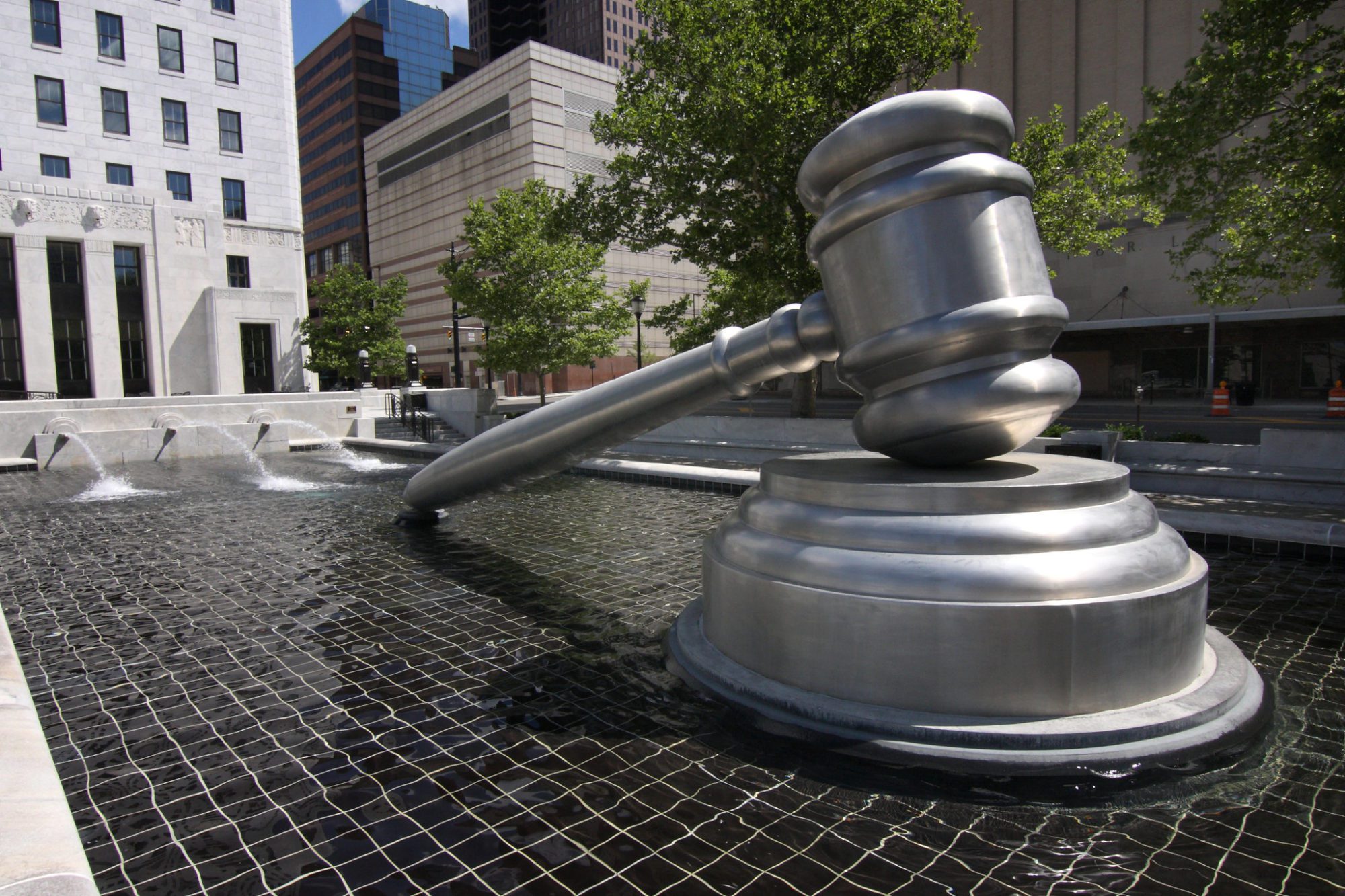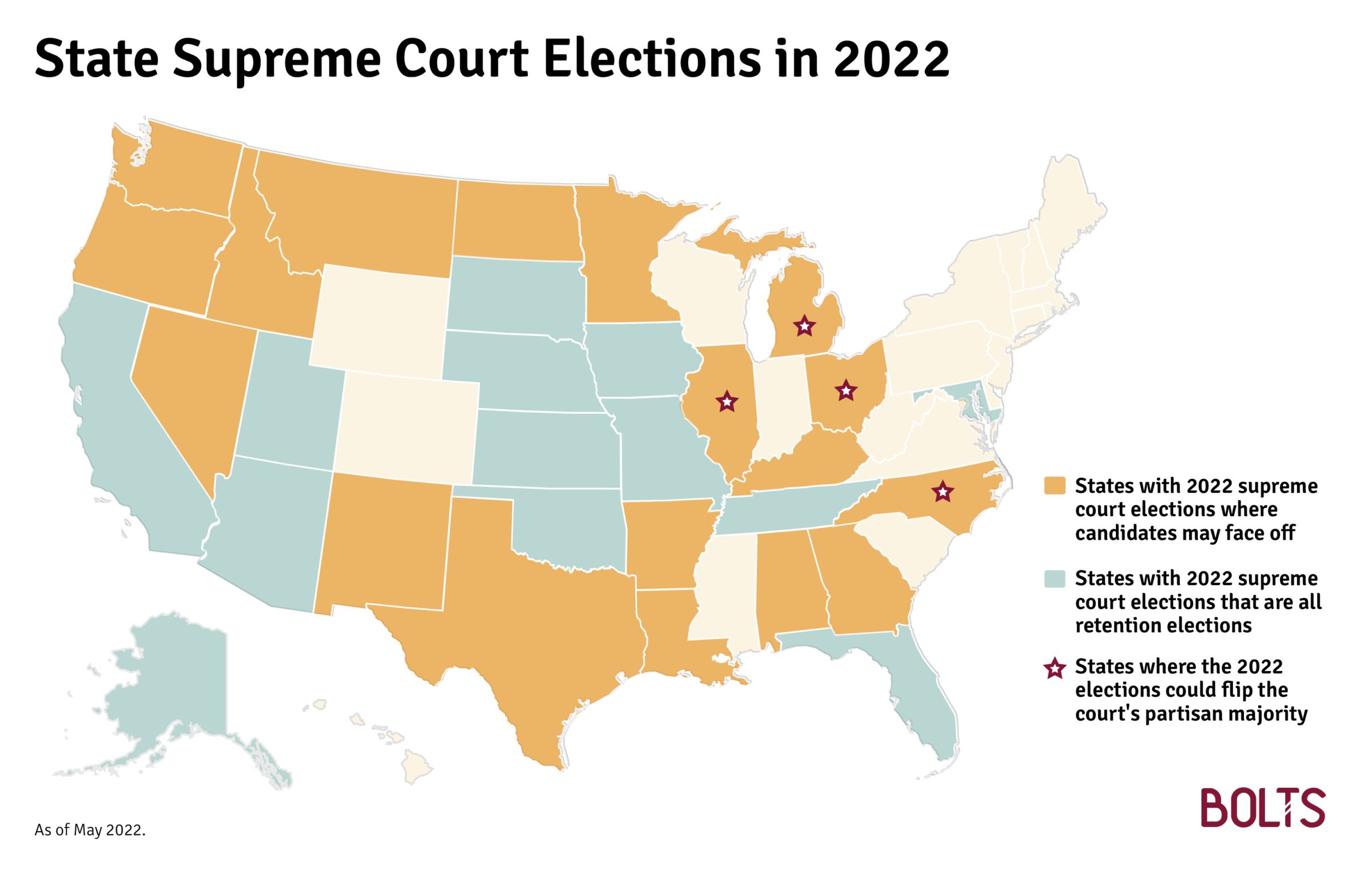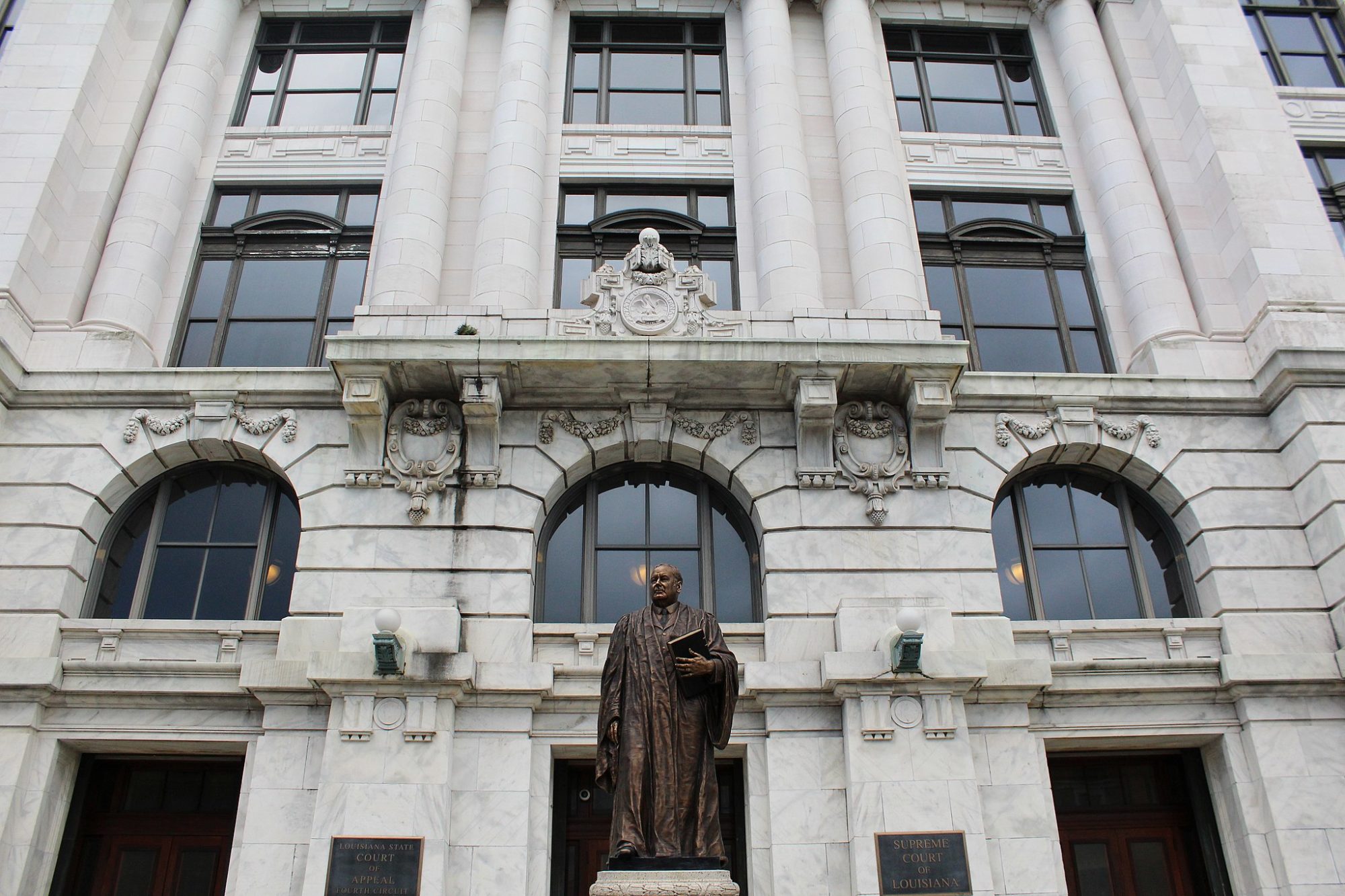Your State-by-State Guide to the 2022 Supreme Court Elections
Voters will shape the future of civil and voting rights when they elect dozens of state justices this year.
| May 11, 2022

Editor’s note: The article has been updated on Sept. 26 to reflect new developments in candidate filings and primary results since the original publication in May.
If the U.S. Supreme Court strikes down Roe vs. Wade, the right to access abortion will stay protected in Kansas—at least for now—because of a recent ruling by its state supreme court. The North Carolina Supreme Court struck down Republican gerrymanders earlier this year, producing fairer midterm maps. And last year, Washington State’s supreme court restricted sentences of life without parole for youth beyond what the U.S. Supreme Court has established.
Judges grounded all of these decisions in their state constitutions. As conservatives flex their stronghold on the federal bench to unravel decades of constitutional protections, state courts can offer alternative paths for civil rights litigation. Inversely, some state courts are proving as zealously conservative as the U.S. Supreme Court, as when Louisiana’s high court effectively restricted the right to protest earlier this year.
The midterm elections are now poised to reshuffle many supreme courts. Voters will elect dozens of justices all around the country, expanding or restricting these courts’ viability as a counter-weight to federal judges.
These elections will decide many of the judges who will hear election law cases in 2024, when former President Donald Trump could once again push to overturn election results. They may also hear many more cases dealing with reproductive rights if the end of Roe makes each state responsible for determining the legality of abortion.
The stakes are most transparent in the four states where the partisan balance of their supreme courts is on the line this fall—Illinois, Michigan, North Carolina, and Ohio.
But the 2022 cycle could also shift jurisprudence across the country if the fragile balance of power is altered in some state supreme courts. In Arkansas, Montana, and New Mexico, for instance, conservative lawyers are running to push the bench further to the right. In Washington State, justices who have formed a narrow progressive bloc are up for re-election.
Most states with supreme court elections this year organize them as regular elections, namely races where multiple candidates face off against each other. Other states straddle a middle ground between appointed and elected judiciaries, with appointed judges facing so-called retention elections, which are up-and-down votes without challengers. It is exceedingly rare for justices to be ousted in retention elections—in fact, in some states this has never happened—though this is at least an avenue for major upheavals this fall in populous states such as Arizona, California, and Florida, if organizing on the left or right were to pick-up.
This breakdown from Bolts walks you through each state’s supreme court elections, telling you who’s running at this stage and why the race could matter.
As the year progresses, new resignations and vacancies could spark new judicial elections, or even cancel them. Ballotpedia’s database can keep you up-to-date.
States with regular supreme court elections
Alabama
A longtime election lawyer for Republicans, Greg Cook is now sowing doubt about the handling of the 2020 election and blaming other state supreme courts for allowing expanded voting options that year. These Trumpian concerns are a major reason he is running to replace a retiring Alabama justice this year, he says. In the May Republican primary, Cook defeated lower-court judge Debra Jones, who also tied herself to the former president, in the Republican primary. He will be favored against Democrat Anita Kelly in the November general election given the state’s politics.
In the state’s second supreme court election, Republican Justice Kelli Wise drew no challenger.
Arkansas
Arkansas’s supreme court elections are ostensibly nonpartisan—but in the May 24 elections, candidates with close ties to the GOP hope to push the court to the right.
Justice Karen Baker faces Gunner DeLay, a lower-court judge and former Republican lawmaker. DeLay, besides touting his conservative politics, is using the old-school tactic of attacking Baker over a vote she took to vacate a murder conviction. (The court found in that case that a charge had been filed in the wrong jurisdiction.) And one of the two challengers to Justice Robin Wynne is the former executive director of the state Republican Party, Chris Carnahan. (A third justice, Rhonda Wood, is unopposed.)
Update (Sept. 26): Baker defeated DeLay on May 24, but Carnahan forced Wynne in a November runoff, Bolts reported.
Georgia
On paper, the 2022 cycle had the potential to rock Georgia’s supreme court: Four seats, a majority of seats on the court, were meant to be on the ballot at once. But by the time the filing deadline passed, one of those four elections was canceled, and two incumbents recently appointed by Governor Brian Kemp had drawn no opponent.
The reason: A “dystopian” loophole that allows Georgia officials to game the system by delaying elections at the last minute, pulling the rug out from under challengers late into a campaign—as state Republicans did in 2018. The gambit appears to be having a chilling effect on candidates’ willingness to jump in.
As the state’s supreme court moves further to the right, at least on criminal justice issues, this legal loophole helps Republicans lock down a conservative bench as long as they have the governorship. The one justice who faces an opponent in the May election is Verda Colvin, against Veronica Brinson.
Idaho
Justices Robyn Brody and Colleen Zahn will each be unopposed as they seek a new term.
Even though it is mostly made up of Republican appointees, this supreme court has protected progressives’ efforts to use direct democracy to circumvent the GOP-run state government. In 2019, it ruled against a conservative lawsuit seeking to invalidate a ballot initiative that expanded Medicaid; last summer, it struck down a Republican law that would have made it significantly harder to qualify an initiative on the ballot. Zahn just joined the court in the summer of 2021 and took part in neither of those decisions; Brody was part of the majority in the latter ruling.
Illinois
Partisan control of the Illinois supreme court could flip, and Republicans had to score an unlikely win just to get this far. A Democratic justice lost an up-or-down retention vote in 2020 and had to leave the court, which triggered an extra election to replace him this year. Two seats are on the ballot, and Republicans would seize control of the court—and with it the power to revisit the state’s Democratic gerrymanders, among other state issues like pension reform—if they win both.
Illinois justices are elected by district rather than statewide, which helps Republicans as neither of the two elections that will decide the court’s partisan balance involves any voter from heavily Democratic Cook County. (The state constitution gives Cook County three supreme court seats, and the rest of the state gets four.) Democrats redrew the judicial map last year for the first time since the 1960s; the 2nd district (Lake, Kane, McHenry, Kendall and DeKalb counties) and 3rd district (Bureau, DuPage, Grundy, Kankakee, Iroquois, LaSalle, Will counties) will decide the court’s balance.
Separately, one Illinois justice from each party is facing a retention election.
Kentucky
Joseph Fischer, a Republican lawmaker who has led the fight to pass abortion restrictions in the Kentucky legislature, is now running for a seat on the state supreme court. He is challenging Michelle Keller, a Democratic-appointed justice, in the sixth district, in northern Kentucky. That election is one of several that will decide this supreme court’s membership this year, since two justices are not seeking re-election in the second and fourth districts. Kentucky’s high court has been an active player in the battles between the Democratic governor and Republican legislature, for instance in its unanimous ruling last year reinstating a law that limited the governor’s public health emergency powers.
But the biggest fireworks in Kentucky’s judicial elections may be found in the very local election for the circuit court of Franklin County, a small jurisdiction that has outsized importance for civil rights and voting rights and has drawn the attention of U.S. Senator Mitch McConnell, as Bolts reported in February.
Louisiana
The Louisiana Supreme Court issued a 6-1 ruling earlier this year that makes protesters guilty by association, threatening the right to protest. And conservatives’ stronghold on the court is sure to continue after 2022. The one justice due to face voters this year is John Weimer, who joined the majority in that ruling, and who represents the 6th judicial district, a large coastal area in the southeast of Louisiana. Weimer faced no opponent in his prior two elections in 2002 and 2012; the filing deadline for 2022 has not yet passed.
Update (Sept. 26): No one filed to challenge Weimer by the filing deadline for the third consecutive cycle. Weimer has thereby secured another term.
Michigan
The 2022 elections will decide nothing less than who controls the state supreme court in one of the nation’s premier swing states during the 2024 presidential race. And since allies of Donald Trump who trot out his Big Lie are trying to take over the machinery of election administration in Michigan, this supreme court may come to play an exceptionally important role at that time. The court’s majority will also be critical on criminal justice issues given a new slate of party-line decisions this year.
Democrats currently enjoy a 4-3 majority on the court. One justice from each party faces voters this year (Richard Bernstein and Brian Zahra, respectively). Republicans need to win both seats to regain control of the court.
Minnesota
Natalie Hudson and Gordon Moore, who are both justices appointed by Democratic governors, are up for re-election this year. Minnesota’s supreme court elections appear as nonpartisan on the ballot, and incumbents have easily won all elections held over the last decade.
Update (Sept. 26): No one filed to run against either Hudson or Moore.
Montana
Conservatives want more control over Montana’s judiciary, and they have tried (unsuccessfully so far) to change election rules. This year, they are taking aim at both supreme court justices on the ballot, Democratic-appointed Ingrid Gayle Gustafson and GOP-appointed James Rice.
Gustafson in particular faces an opponent who enjoys strong support from the state’s Republican officials: Jim Brown, a former counsel for the state’s Republican Party, as well as for a group that took down the state’s election disclosure laws. (A lower-court judge, Mike McMahon, is running in this election as well.) Montana’s supreme court is now at the center of the state’s latest voting rights disputes, as it’s long been, adding special importance to this showdown.
Nevada
Incumbent judges frequently go unopposed, and that will be the case this year for Justice Ron Parraguirre. But what’s more surprising is that the retirement of Justice James Hardesty has also occasioned no contest: Linda Bell, a lower court judge who has worked as a federal public defender and as a local prosecutor, is the only candidate and will join the state’s highest court.
New Mexico
New Mexico’s state supreme court, which is currently entirely made up of Democratic justices, is sure to keep its Democratic majority this fall. But Republicans could narrow their deficit; Justices Julie Vargas and Briana Zamora, both appointees of Governor Michelle Lujan Grisham, will face GOP challengers Thomas Montoya and Kerry Morris, respectively.
In a letter touting his candidacy, Morris casts Montoya and himself as “conservative voices,” and frames his bid as an answer “to the power of George Soros and Zucker Bucks [in reference to Mark Zuckerberg] to control the elections in New Mexico.” As Bolts reported in March, some on the right are fomenting conspiracies tying election funding to Soros and Zuckerberg, both of whom are Jewish, often spuriously.
North Carolina
The math is simple but the stakes are high in North Carolina. Democratic justices hold four of seven Supreme Court seats but they must defend two this year. If a Republican flips just one of them, they would gain control of the court.
Given the state’s recent history, a partisan flip would affect the outcome of major civil rights cases. In recent years, the Democratic-majority court has voted on party lines to struck down GOP gerrymanders expanded the scope of racial discrimination appeals in the criminal legal system. It is now considering the constitutionality of the state’s felony disenfranchisement statutes in a case that may restore voting rights to tens of thousands of North Carolinians.
Depending on the outcome, Democrats may rue the 2020 cycle, when Democratic Chief Justice Cheri Beasley lost her re-election race by just 401 votes.
North Dakota
Justice Daniel Crothers is running for a new 10-year term unopposed, just like the last two times he faced voters, now that the filing deadline has passed for anyone to challenge him.
Ohio
Ohio’s highest court struck down Republican gerrymanders on 4-3 votes this year, with the three Democratic justices who prevailed in 2018 and 2020 in the majority, joined by Republican Chief Justice Maureen O’Connor.
But everything is now on the line in 2022. Three seats are on the ballot, and all are now held by Republican justices, so Democrats have a shot at grabbing a majority of the court. But the court could also shift to the right because O’Connor is barred from seeking re-election due to her age. This means that, if Republicans sweep the cycle’s three elections, and even if these would all be partisan holds, it would likely tip the balance toward them in future redistricting cases, and re-open the gerrymandering floodgates.
One twist: The only Democrat running for O’Connor’s chief justice seat is Jennifer Brunner, who is already a justice on the court. Were she to win and flip that seat for Democrats, Ohio’s Republican governor would likely get to appoint Brunner’s successor. In other words, Democrats must flip one of the other two seats—ousting either Pat Fischer or Pat DeWine, the son of the state’s governor—to be sure to seize a court majority.
Oregon
Governor Kate Brown appointed Roger DeHoog, a lower-court judge with past experience as a public defender, to the state Supreme Court in January. The appointment was noteworthy given the dearth of justices who have worked as public defenders in state supreme courts.
DeHoog is now seeking a full 6-year term—and he is sure to win, since no one filed to challenge him.
Texas
Conservative “stop the steal” activists fell short in their effort to oust a Republican judge in the March primary; they were angry at Scott Walker’s vote late last year to limit the attorney general’s efforts to investigate voter fraud. Now, it’s time for the general election. All 18 judges across the state’s two high courts are Republican, and five of them (including Walker) will face Democratic challengers in November.
Democrats will have their work cut out for them: They haven’t won a statewide election in the state since 1994, and all the seats on the 2022 ballot (three on the Court of Criminal Appeals, which handles criminal cases, and three on the Supreme Court) feature a GOP incumbent. Of note: Two of the Democratic challengers, Erin Nowell and Amanda Reichek, are lower-court judges who beat Republican incumbents in 2018.
Washington
Washington’s supreme court has grown more progressive and diverse with Governor Jay Inslee’s appointments, with major ramifications for criminal justice. Last year, the court issued landmark rulings that expanded restrictions on life sentences, and that struck down state statutes that criminalized drug possession. (State Democrats then passed a law that makes drug possession a misdemeanor; it was a felony before the court’s ruling.) Both rulings were 5-4, a sign of the importance of court membership even in reliably Democratic-states.
Two of the justices in this emerging progressive majority, Mary Yu and Helen Whitener, have to face voters to secure new terms this year, as does a third incumbent, Barbara Madsen.
Incumbent justices seeking re-election in Washington have won very easily in recent cycles; the elections appear on the ballot as non-partisan.
Update (Sept. 26): None of the three justices who are seeking a new term this year will face an opponent on the ballot.
States that only have retention elections this year
Alaska
Daniel Winfree, the only sitting justice appointed by former Governor Sarah Palin, is technically up for retention this year, but he is set to hit the mandatory retirement age early next year anyway. Whomever is elected governor this fall will appoint Winfree’s replacement, and at least one other justice, and candidates are connecting the dots to future of abortion rights.
Arizona
Bill Montgomery built a punitive record as prosecutor of Arizona’s Maricopa County until he was nominated to the state supreme court in 2019 by the Republican governor. This year, he faces his first retention election, alongside other Republican-nominated justices. The political context is explosive: The GOP expanded the court’s size and changed the appointment procedure last decade to solidify conservative power.
On paper, all of this could all add up to a major showdown—if it weren’t so exceedingly rare for Arizona judges to fail retention elections. When voters ousted a county judge in 2014, it was the first time an Arizona judge had lost a retention election in decades. And it has not happened since.
California
It would mark a significant break with recent history if California’s retention elections proved contentious this year. No justice has so much as dipped below two-thirds of the vote in the last two midterm cycles. Still, four justices are up for retention this year—one appointed by Arnold Schwarzenegger, another by Jerry Brown, and two by Gavin Newsom.
Progressives looking to affect the court have focused their efforts on pressuring Governor Gavin Newsom to appoint a justice with background as a public defender, which has not happened in decades in this state. But both of Newsom’s appointments have prosecutorial experience instead.
Florida
Five of the seven justices on Florida’s supreme court are up for retention this year, including two appointed by Republican Governor Ron DeSantis. On paper, then, Democrats have a path to reverse the court’s dramatic rightward shift; also on paper, the right could push its advantage since one of the justices on the ballot, Jorge Labarga, is part of the court’s shrinking left flank.
But in practice, it would be an immense undertaking to convince the electorate to fire a justice. No judge has ever lost a retention election in Florida.
And regardless of the ballot box, conservatives are likely to further solidify their hold on this court since Alan Lawson (one of the court’s less conservative justices) recently announced he would retire over the summer, granting DeSantis yet another appointment.
Indiana
Justice Steven David was meant to face a retention election in 2022, but he indicated instead that he would retire at the end of the year, so Indiana will host no supreme court race this year. Republican Governor Eric Holcomb will choose David’s replacement in the coming months.
Iowa
Not long ago, Iowa’s supreme court leaned liberal, as it issued a landmark ruling on same-sex marriage in 2009 and considered other progressive lawsuits. But the court has swung to the right alongside the rest of the state because conservatives ousted three justices in the 2010 cycle, and later Republican governors got to appoint many judges. The 2022 ballot features retention elections for two of GOP Governor Kim Reynolds’s appointees, Dana Oxley and Matthew McDermott, who long worked as a lawyer for Republican politicians.
Kansas
The Kansas Supreme Court ruled in 2019 that the state constitution protects access to abortion. That landmark decision, which drew just one dissenter, was the latest in a string of decisions on reproductive rights. Those battles bled into the electoral realm in 2016, when conservative groups led by Kansas for Life targeted a group of justices. But all incumbents prevailed that year by margins no smaller than 10 percentage points.
This year, six of seven Kansas justices (three of whom joined the court after that 2019 ruling) are on the ballot in retention elections.
Conservatives are seeking another route this year to overturn the court’s rulings on reproductive rights: Kansans will vote on a constitutional amendment on August 2 that would affirm there is no right to an abortion in the state constitution, effectively overturning the court’s 2019 ruling. (If the referendum fails, though, the court’s composition will remain paramount for this issue.)
Redistricting is also on the menu: By the time these retention elections come around, the Kansas supreme court will have settled the uncertain fate of the state’s GOP gerrymander.
Maryland
Five of the court’s seven judges have been appointed by Republican Governor Larry Hogan and confirmed by the Democratic-controlled state Senate. Hogan’s first four appointees easily cleared their retention elections in past cycles, receiving at least 75 percent of the vote. The fifth, Steven Gould, faces voters this year.
Missouri
Two judges face voters in retention elections this year: longtime incumbent Zel Fischer, and the recently appointed Robin Ransom. Retention elections have been uneventful in Missouri’s recent history; no judge has received less than 63 percent of the vote over the past ten years, and often they win with even higher margins.
Nebraska
Nebraskans have overwhelmingly voted to retain their supreme court justices ever since a successful campaign in 1996 to oust David Lanphier over some of his rulings, including one that gave dozens of people incarcerated over murder convictions the opportunity for new trials. There is no indication so far that this year will be any different, with four justices up for retention if they choose to seek new terms.
Oklahoma
Oklahoma’s supreme court judges have never lost a retention election, according to The Oklahoman, despite the court’s history of high-profile decisions. There’s no reason so far to suspect that 2022 will wield a different result. Up for retention this year: Two longstanding justices who have already won two retention elections, alongside two newly appointed judges.
South Dakota
In November, South Dakota’s Supreme Court struck down a voter-approved initiative that legalized marijuana. The decision could become a campaign issue, considering two of the four justices who issued that ruling are facing voters in a retention election this year.
Tennessee
Tennessee’s Supreme Court has already shifted rightward in 2022: In January, Governor Bill Lee appointed Sarah Campbell, a conservative jurist and former clerk for Samuel Alito, to replace one of the court’s only two Democratic-appointed justices, who passed away in the fall.
As recently as 2014, a majority of justices were appointees of a Democratic governor. That year, conservatives launched a major offensive to oust them, but all incumbents prevailed that year by double-digits. Republicans have controlled the governor’s mansion since 2011, though, and they have been able to change the court’s composition through appointments.
The only remaining Democratic-appointed justice, Sharon Lee, is up for retention this year, as is Campbell and other justices.
Utah
Utah justices facing retention elections over the past decade have all won with at least 75 percent of the vote, which bodes well for Justice Paige Petersen in her retention election this year. The bigger upheaval this year is that GOP Governor Spencer Cox gets to fill two vacancies, including one triggered by the retirement of Thomas Lee, brother of U.S. Senator Mike Lee.
Sign up and stay up-to-date
Support us
Consider a contribution to help sustain Bolts! And learn more about us here.





